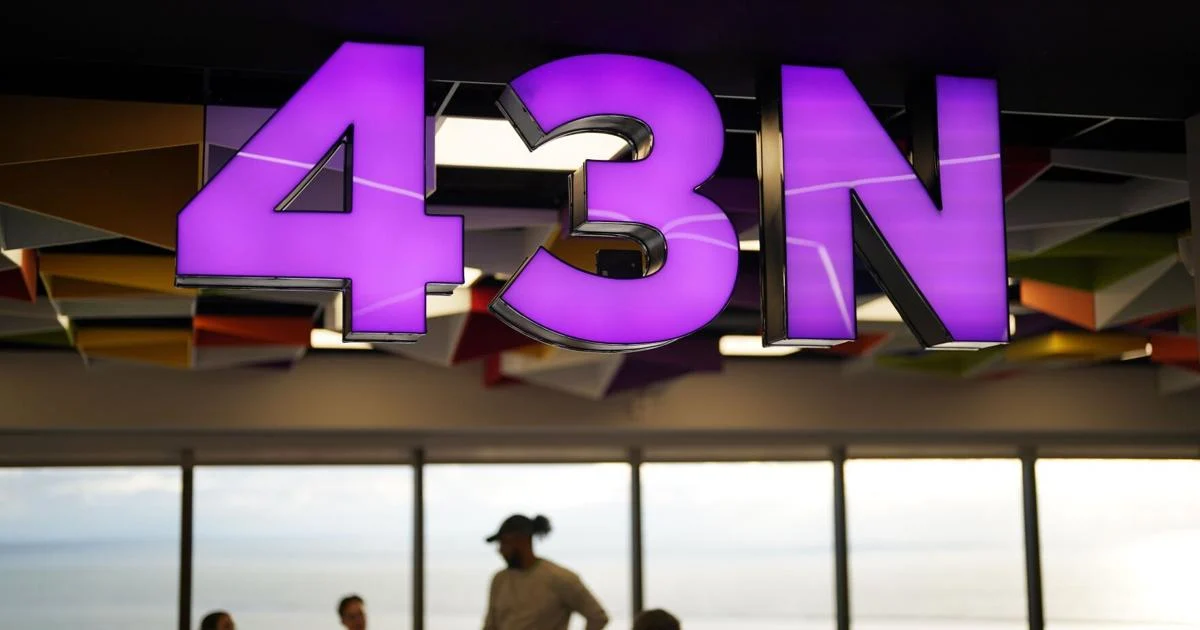By Contributor,Jaime Catmull
Copyright forbes

Urban black woman with smartphone and headphones in city or street walking and listening to music, networking and typing on chat ap. Gen z girl with cellphone with subscription or 5g audio streaming
For decades, we worshipped beautiful apps. Polished user interfaces. Pixel-perfect buttons. Infinite scroll.
That era just ended.
We no longer need to click our way through software to get things done. AI agents can navigate apps for us—and they’re faster, more accurate, and never get tired.
This is the death of the application era and the birth of agentic speed. Increasingly, consumers will ask systems like Notion AI to “just handle it,” and the agent will fetch, write, file, and coordinate across tools—no tabs required. For thousands of companies, employees will never again “open” Google Drive to hunt for documents or navigate HR portals to submit forms. The AI layer will orchestrate everything behind the scenes. The app becomes plumbing. The agent becomes the interface.
It’s a platform flip from apps to agents that will change how companies operate, how markets price software, and what “product” even means.
In a recent interview with Erez Druk, CEO of Freed, about this shift, and his perspective was eye-opening—enough to reframe how I think about artificial intelligence and its impact on the entire economy. The implications touch capital allocation (it may be time to rethink exposure to legacy seat-based SaaS and EHR vendors) and, more importantly, how every entrepreneur runs a company and structures time in an agent-first world.
The Permission Problem Is Solved
Here’s what changed: agentic UX has crossed the reliability threshold. Agents can navigate existing software safely and audibly without waiting for new integrations—API integrations are suddenly obsolete. That severs the last dependency that kept apps in the driver’s seat.
Healthcare is ground zero for this shift—not because it’s special, but because it’s the hardest test case. Electronic health records (EHRs) were supposed to eliminate paper chaos—mail, fax, emailed PDFs, billing forms, prior auths. Instead, we got 500+ disparate systems, brittle integrations, and hours of daily charting. If agents can fix the most regulated, fragmented, mission-critical software category in existence, they can fix anything.
MORE FOR YOU
Freed, the Sequoia-backed AI “scribe” (which is clearly now an agentic clinician assistant) that Erez founded to help save his wife hours of her time each week, just proved the thesis. They just introduced EHR Push—an agent that navigates web-based EHRs like a human and inserts finalized notes without an API integration. No IT department needed. No vendor partnerships. The agent just… works.
“We’re witnessing the end of software friction as we know it,” says Druk. “For decades, every business workflow has been bottlenecked by the need for humans to manually navigate between systems. EHR Push is just the beginning—we’re proving that agents can operate any web-based software without APIs, without waiting for vendor cooperation. This fundamentally changes the power dynamic between users and software companies.”
How the Revolution Actually Works
A clinician reviews and finalizes a clinical note in Freed. With one click, the agent navigates through the browser within the EHR, just like a clinician would during and after a patient visit. The agent maps structured sections of the note to the correct fields in the chart and inserts them. Reliability is measured step by step: there are multiple checkpoints in that process to ensure accurate mapping and transfer. If anything looks off, the agent will fail safely and will not attempt to transfer.
Under the hood, Druk explains, the breakthroughs: “We’ve essentially taught AI to be a great employee who works at superhuman speed. Our agents can learn an interface, adapt to change, and execute workflows with deep accuracy. When agents become better at manual tasks than humans ever need to be there is no longer a strong need for user interfaces.
The security model is enterprise-grade: HIPAA compliance, encryption in transit and at rest, device-bound credentials and tamper-evident audit trails.
The Market Earthquake: SaaS Without Users
Notion AI orchestrates across productivity tools. Claude and ChatGPT are starting to execute multi-step workflows. Dozens of startups are building agents that navigate existing software. It’s a coordinated assault on the entire concept of human-operated applications.
This changes everything about how software companies make money and how businesses operate:
Pricing pressure: When agents are the users, vendors must price on outcomes and usage, not seats. Expect margin compression for UI-heavy incumbents and premiums for verifiable results.
Switching costs crash: Agents have no brand loyalty. If a better system emerges, agents can redirect in real time. The switching cost is no longer retraining a workforce—it’s updating the policy.
Distribution flips: The agent platform (think Notion AI-style orchestration) becomes the new “app store.” The best execution pathways win, not the prettiest screens.
KPI reset: Time-to-outcome, error rates, and auditability replace daily active users. Reliability becomes the moat.
The New Rules of Capital
Smart money is already repositioning. Venture firms are overweighting agent platforms with privileged context and execution reach across tools, while betting big on vertical agent proofs where friction is highest—healthcare, insurance, finance operations. Meanwhile, they’re pulling back from UX-led SaaS companies with shallow APIs and high training costs. Expect a wave of M&A as incumbents buy agent primitives rather than attempt to rebuild their own.
For operators, the playbook has fundamentally changed. Companies must now design for agents first, exposing reliable actions, structured state, and auditable logs rather than optimizing for human interfaces. The new KPIs are outcome SLAs, not user engagement metrics. Your primary users won’t be humans—they’ll be agents. The strategic question becomes: where do you partner when actions could change clinical or financial intent, and where do you automate aggressively to eliminate human friction entirely?
What Comes Next
Freed’s roadmap extends far beyond notes. “We’re building toward a world where clinicians don’t need to touch administrative software,” Druk says. “The agent handles documentation, billing prep, prior authorizations, follow-up scheduling—everything that pulls doctors away from patient care”. But this model applies everywhere: imagine CFOs who never open expense software, HR managers who never navigate payroll systems, sales teams who never update CRMs. Agents will become the workforce that operates the software while humans focus on the outcomes.
But the bigger story is what this signals for every other industry. If clinicians can skip EHR navigation entirely, imagine the rest of us never logging into expense tools, CRM dashboards, or project management apps. AI navigates the software. We navigate our lives.
Freed raised $30 million led by Sequoia earlier this year, citing 20,000+ paying clinicians. Investors aren’t just betting on healthcare—they’re betting on the death of manual software navigation across the entire economy.
Watch the clinicians who no longer log into their EHR to paste notes. Then imagine yourself never opening another admin panel, never hunting through file systems, never clicking through forms. That’s the promise of agentic speed: a world where the app recedes and the agent advances, where the interface is language, where the default action is done, not opened.
It’s a funeral for the old way of computing, and a birth announcement for the new.
Editorial StandardsReprints & Permissions



